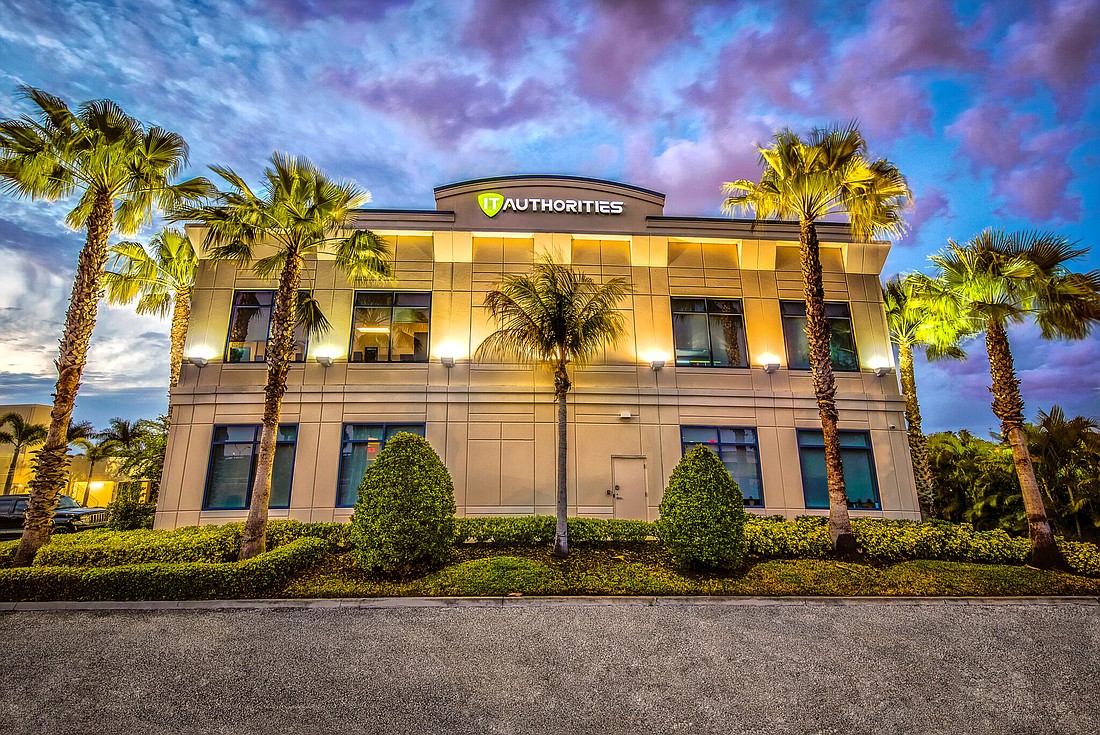- April 22, 2025
-
-
Loading

Loading

With a big dose of candor, Tampa technology executive Jason Caras admits he had next-to-no confidence this whole work from home thing would be successful.
‘When people asked to work from home, we would kick, scratch and claw to keep them here.’ Jason Caras, IT Authorities
“Prior to COVID-19 we really thought we had to micromanage our people in the office,” says Caras, co-founder and CEO of IT Authorities, a managed services firm that focuses on tech infrastructure, software and support for a bevy of business clients. “When people asked to work from home, we would kick, scratch and claw to keep them here.”
The pandemic has given Caras and the IT Authorities executive team an entirely different outlook on work from home, or as its commonly known, WFH. “What really surprised me was the productivity,” he says. “In some cases it nearly doubled. We didn’t think it would work, but it’s worked like a charm.”
It’s worked so well that Caras has taken a big step: He recently listed IT Authorities’ 18,000-square-foot headquarters building for sale, saying there’s no longer a reason to have such a big space when the company is so productive in a WFH setting. Although he plans to keep some physical space for IT Authorities, saving $40,000 a month in mortgage payments and utilities costs, with the added productivity, Caras says, is a no-brainer.
It might be too early in pandemic to call this a trend. But IT Authorities follows at least one other company in the region, Venice-based drinkware firm Tervis, in making a commercial real estate listing decision fueled, at least in part, by WFH success. Tervis, one of the largest employers in Sarasota County, with a payroll of some 500 people, listed its headquarters building for sale in June. The space has the manufacturer’s home for 15 years.
But when the pandemic forced Tervis to temporarily close operations, nonfactory employees were so productive at home, Tervis President Rogan Donelly says, that the company decided to sell the facility and shrink its space. The 120,000-square-foot building, spread on 12.5 acres, is on the market for $14.5 million. Michele Fuller and Nick DeVito of Ian Black Real Estate are the listing agents.
IT Authorities, meanwhile, seeks $6.5 million for its two-story complex, next to the Microsoft building at the foot of Howard Frankland Bridge. The Class A space, flexible for one or multitenants, features an Italian-tiled lobby, wood-paneled elevator, 10-foot ceilings and a grand entrance featuring a glass-wall staircase, according to its sales prospectus. Sanford Mahr and Amy Cox with The Mahr Co. are the listing brokers. “It’s a beautiful building in a beautiful space,” Caras says.
Caras bought the building in 2015, and he says the space has been a great headquarters for his fast-growing 100-employee firm. Founded in 2006, IT Authorities grew revenue 169.6% from 2016 to 2018, from $12.5 million to $33.7 million. Saying a big contract ended and the company restructured some parts of the business, Caras declines to disclose 2019 revenue figures. But 2020 — again leaning on WFH, this time with clients — has been a boon, he says, with record sales and record work in the pipeline. “We’re getting leads every week,” he says.
Caras says IT Authorities won’t go homeless. He seeks to buy a building, around 5,000 square feet, both as a place to store hardware for clients and to have some meetings and face-to-face employee contact.
Like Donelly and Caras, building owner and entrepreneur Jesse Biter, who runs Sarasota-based real estate technology firm PropLogix, has been pleasantly surprised at his company’s WFH productivity. PropLogix, which uses proprietary software to help clients find fees, liens or assessments on properties to aid real estate closings, has nearly 200 employees. The company had $29.91 million in revenue in 2019, up 51.14% from 2018, when it had $19.79 million.
Unlike those others, with a history in their spaces, PropLogix moved into its building three weeks before the pandemic, after Biter paid $10.5 million for the 44,000-square-foot complex. Biter, who has bought and sold multiple other buildings in the area, half-jokingly mentioned to his broker that maybe they should list the newly bought property, so he could shed his $85,000 monthly mortgage.
But Biter maintains there’s a future for a real office post-pandemic — whenever that is, and he has no plans to sell the new PropLogix headquarters. “I think having an office and nice headquarters is critical to the success of a business,” Biter says. “There certainly will be a time when it's safe to go back.”